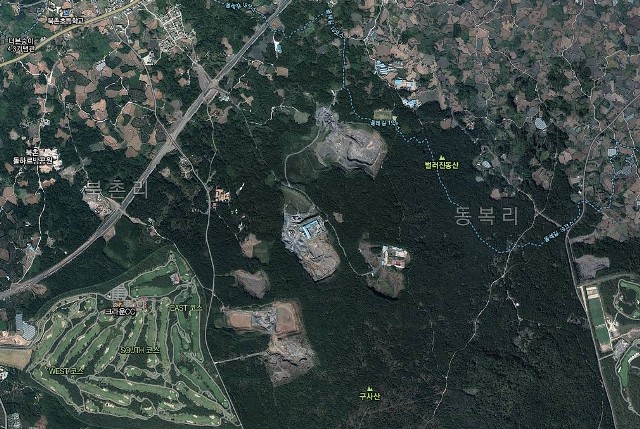| |
 |
|
| ▲ The site to be developed is mostly Gotjawal woodland in Jeju's northeast. |
Jeju province is developing a flagship Green Energy Town in Dongbok-ri, Gujwa-eup. The 56.5 billion won project, 20 billion won of which is supported by Jeju province, will provide new incineration, landfill and recycling facilities for Jeju Island.
The project also includes a wind energy farm, various business opportunities and a “healing town” resort and is part of Jeju’s renewable energy and recycling policy in line with the World Environmental Capital 2020 bid.
Locals in Bonggae-dong, Jeju City, voted against renewing the lease for the previous incineration and landfill site in their village after local water contamination and alleged mismanagement angered locals.
The province thus had to look elsewhere and wooed Dongbok-ri villagers with a series of incentives such as supporting salaries at the local elementary school and providing families of elementary school students with free rental accommodation. Also available are grants of up to 1 million won for every middle, high school and university student from the village.
In other economic benefits, businesses managed by Dongbok-ri village council are expected to contribute to profits of 650 million won per year leading to projected job creation across the district.
Jeju Energy Corporation, managing and financing much of the project, is constructing a 30 MW wind power farm which will produce 66,659 MWh (megawatt-hours) of energy from only domestic wind turbines. The farm will generate at least 14 billion won in sales revenue and is projected to supply 18,438 of Jeju’s 238,000 households, being essential for Jeju’s carbon-free future.
By 2018, the 200,000 square meter incinerator at the environmental resource recycling center will handle 500 tons of refuge per day. There will also be community businesses on site including a gas station, convenience store, restaurants and second-hand furniture sales. A 33,000 square meter underground “healing care town” will also be constructed, utilizing Jeju’s water from Jeju’s submarine aquifer, and solar energy projects will be supported. |




















